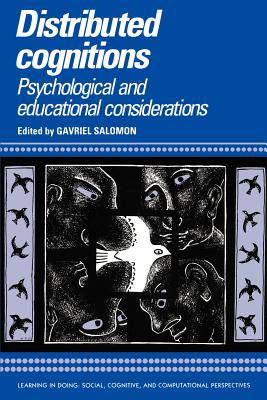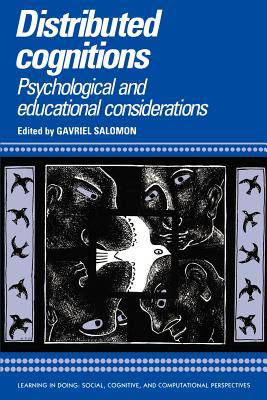
- Afhalen na 1 uur in een winkel met voorraad
- Gratis thuislevering in België vanaf € 30
- Ruim aanbod met 7 miljoen producten
- Afhalen na 1 uur in een winkel met voorraad
- Gratis thuislevering in België vanaf € 30
- Ruim aanbod met 7 miljoen producten
Zoeken
Distributed Cognitions
Psychological and Educational Considerations
€ 69,45
+ 138 punten
Omschrijving
Traditionally, human cognition has been seen and studied as existing solely "inside" a person, irrelevant to the social, physical, and artifactual context in which cognition takes place. This book reexamines the nature of cognition and proposes that a clearer understanding of human cognition would be achieved if it were conceptualized and studied as distributed among individuals; knowledge is socially constructed through collaborative efforts toward shared objectives within cultural surroundings, and that information is processed among individuals and the tools and artifacts provided by culture. The contributors to this thought-provoking text enhance their arguments by offering examples from daily life and educational activities. Researchers in a number of social and scientific fields will welcome this book.
Specificaties
Betrokkenen
- Uitgeverij:
Inhoud
- Aantal bladzijden:
- 300
- Taal:
- Engels
- Reeks:
Eigenschappen
- Productcode (EAN):
- 9780521574235
- Verschijningsdatum:
- 28/12/1996
- Uitvoering:
- Paperback
- Formaat:
- Trade paperback (VS)
- Afmetingen:
- 153 mm x 230 mm
- Gewicht:
- 421 g

Alleen bij Standaard Boekhandel
+ 138 punten op je klantenkaart van Standaard Boekhandel
Beoordelingen
We publiceren alleen reviews die voldoen aan de voorwaarden voor reviews. Bekijk onze voorwaarden voor reviews.










